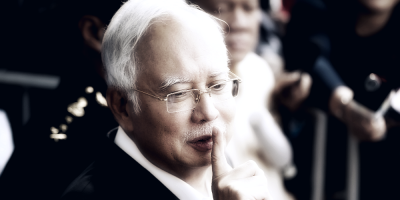
There is a need for the Malaysian economy to evolve and transform itself in order to improve the welfare of citizens and improve the nation’s position in the region.
Over the last decade, Malaysia’s economic prosperity has declined when viewed relative to other ASEAN economies.
In addition, structural changes are necessary to keep the Malaysian economy relevant to trade in the future.
This has nothing to do with Reformasi or which side of politics controls the government. The Malaysian economy must continue to evolve.
This article looks at a few areas where Malaysia can steer towards enhanced economic performance and growth.
Developing creativity and innovation
Developing creativity and innovation within Malaysia’s economy is the nation’s biggest problem. However, if tackled correctly from early education, this problem can be solved and the next generation can look at business from the point of view of innovation, rather than rent seeking. This will add tremendous value to the economy.
As mentioned, education is the key. Primary, secondary, graduate, and postgraduate education must be completely overhauled.
This should include inserting life skills into primary and secondary education, introducing entrepreneurship into the education system, and making TVET education more prestigious to encourage more take-up.
Postgraduate research must look at research problems that solve societies problems.
Finally, Malaysian students must be provided with an environment that encourages them to ask questions.
Deregulation
The removal of the ceiling price on chicken recently saw the price drop in the market.
Controlled prices and subsidies often work in unintended ways that distort markets to the disadvantage of consumers. Too many markets in Malaysia are designated monopolies.
The price of imported rice is artificially inflated due to only one company being able to import the commodity.
Likewise, exclusive import permits only restrict supply, usually leading to higher prices for consumers.
Malaysia needs to deregulate most of the economy so that it can become more competitive.
Improving land security for farmers and updating land reforms
One of the keys to Malaysia’s future food security will involve granting better land security to farmers occupying temporary government lands.
In addition, through inheritance many land plots around the country have become too small and uneconomic to utilise for food production.
This issue needs to be urgently grappled with, so that more land can be freed up for agriculture.
There can’t be much agricultural reform without clear land reform.
East Coast Rail Link (ECRL)
The ECRL between Kota Bharu in Kelantan and Port Klang via the ports of Kemaman and Kuantan will enable a land bridge to Port Klang.
This will allow a direct connection between the South China Sea and the Strait of Malacca.
This link will be highly competitive with the proposed Kra land bridge between Chumphon in the Gulf of Thailand, and the Andaman Sea.
The distance by sea for both projects are very similar, as ships using the proposed Kra project will have to cruise into the Gulf of Thailand first. Thus, a competitive Kemaman/Gebeng to Port Klang land bridge in operation before Kra is a game-changer in China-Japan-Korea and MENA-European trade.
This could potentially build Port Klang into one of the most strategically important ports in the region.
Rather than Malaysia investing in the Thai Kra land bridge project, as prime minister Anwar Ibrahim has publicly stated, plans should be under way to make the Malaysian land bridge a success.
Turning halal certification into a value-added competitive advantage
For far too long halal certification has been just an extra cost to business, and subject to scandal in Malaysia.
Rather than halal certification being just an extra cost, it should be revamped into a full-scale management system, integrating halal standards into other international food safety standards.
Malaysia could use this framework to add value to agricultural produce and processed foods through innovative certification systems by combining halal certification with Good Agricultural Practice, thus becoming HalalGap.
Malaysia could invest in Syariah Compliant Online Logistical Control systems, and promote this as an industry-wide standard.
The field of halal science should fit into this strategic blockchain to provide controlled integrity through the whole logistics process.
This would turn halal certification into a platform that carries with it a definite competitive advantage into the rapidly growing worldwide halal food market.
Encouraging frugal innovation to create more domestically created capital equipment
One of the great setbacks for MSMEs is that the cost of specialised capital equipment for manufacturing and farming must be imported.
Students in universities today are not taught frugal engineering so that they can apply the principle of creating appropriate technology approaches for Malaysia’s MSME production and farming sector.
This will drastically reduce capital requirements for thousands of SMEs and re-skill engineers to solve local problems by building the necessary equipment for businesses.
Frugal innovation could drive the creation of a whole new engineering sector in Malaysia.
Engage the BRICS trade block
The BRICS framework includes Brazil, Russia, India, China, and South Africa.
Egypt, Ethiopia, Iran, Saudi Arabia and the UAE should become additional members on January 1.
BRICS encompasses approximately 27 percent of world trade and could possibly open up a number of new markets for Malaysia, as it continues to expand.
This could be part of Malaysia’s strategy to build upon its ailing export base.
Increase gold reserves
Malaysia’s gold reserves have remained very stable at around 30 MT.
Malaysia’s domestic production has ranged from 1.7 MT to 4.6 MT per annum. Production has dropped over the last couple of years.
Increased domestic gold production could boost Malaysia’s gold reserves, where there is is predicted turbulence in the USD as a major trading currency.
The above random ideas could potentially change the Malaysian economy and build new points of competitive advantage into domestic corporations.
These measures will also strengthen the economy and help tackle some of the uncertainties in the near future.
These are not measures that require large budget allocations to achieve, and should be considered in future economic policy discussions.
(Murray Hunter has been involved in Asia-Pacific business for the last 40 years as an entrepreneur, consultant, academic and researcher. He was an associate professor at Universiti Malaysia Perlis.)
ADVERTISEMENT
ADVERTISEMENT








































